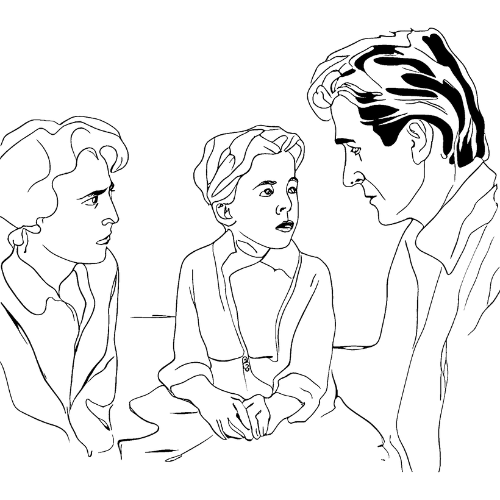"Marriage" ◆ Growing Through Disagreements
- kayukawa-clinic

- 7月23日
- 読了時間: 2分

The Chūnichi Shimbun Morning Edition – May 26, 2006
A workaholic husband who neglects his family, and a wife who dreams of independence and decides to divorce him... The film Kramer vs. Kramer, released 27 years ago in the United States, is rich in insight and seems to have foretold issues facing modern Japan.
In the movie, Dustin Hoffman's character returns home elated after closing a major deal at work, only to find his wife packing her belongings. Despite his desperate attempts to stop her, she leaves with a weary expression, saying, "It's my fault," and walks out, leaving their seven-year-old son behind.
At first overwhelmed by anger and confusion, the husband gradually comes to face child-rearing head-on. He throws himself into preparing breakfast, taking his son to and from school, and reading to him at night. Over time, work becomes less of a priority, and he begins to realize how lonely his wife must have felt because of his former self.
Meanwhile, with the help of counseling, the wife regains her strength and lands a high-paying job. Yet her longing for the son she left behind only grows stronger. She eventually files for custody, but comes to recognize that her husband has changed from the man he used to be.
One of the film’s greatest strengths lies in its subtle portrayal of how both parents, even as they battle in court, begin to develop a renewed sense of care for one another. In one particularly moving scene, the father, advised by his lawyer to put his son on the witness stand to win the case, says, “No, if that’s what it takes, I’ll give up,” and accepts defeat. In the final scene, when the mother arrives to take the boy but tearfully says, “This is his home,” it marks a touching moment of growth for both characters.
Modern life is full of conditions that can strain family relationships. In an increasingly competitive society, work becomes ever more demanding, and many workers accumulate significant stress. Child-rearing within nuclear families often leads to the mother becoming isolated, causing more and more people to lose their mental and physical balance. Disagreements about sharing child-rearing responsibilities between working parents also frequently lead to conflict.
Rather than responding to such pressures with the decision “so let’s not have children,” we should aim to grow into mature partners who can truly care for and support one another.
コメント